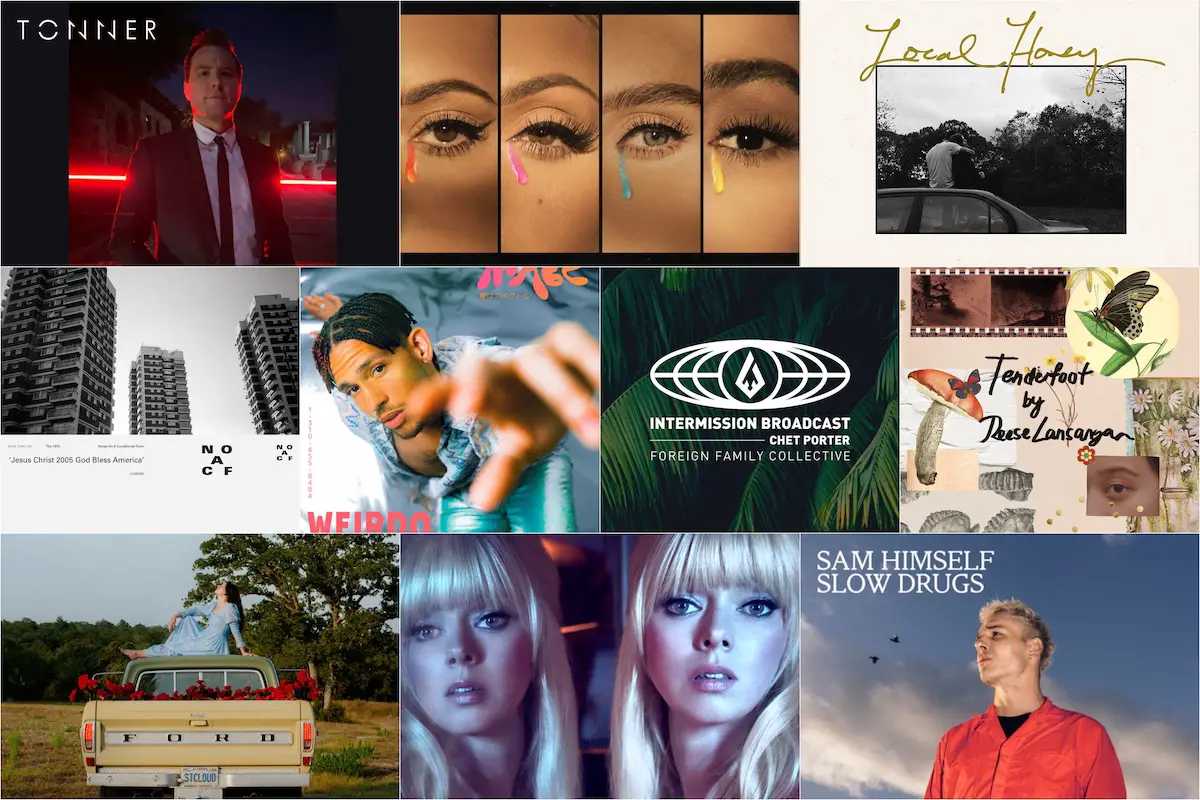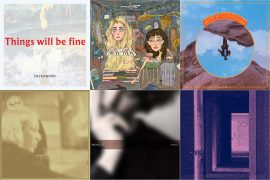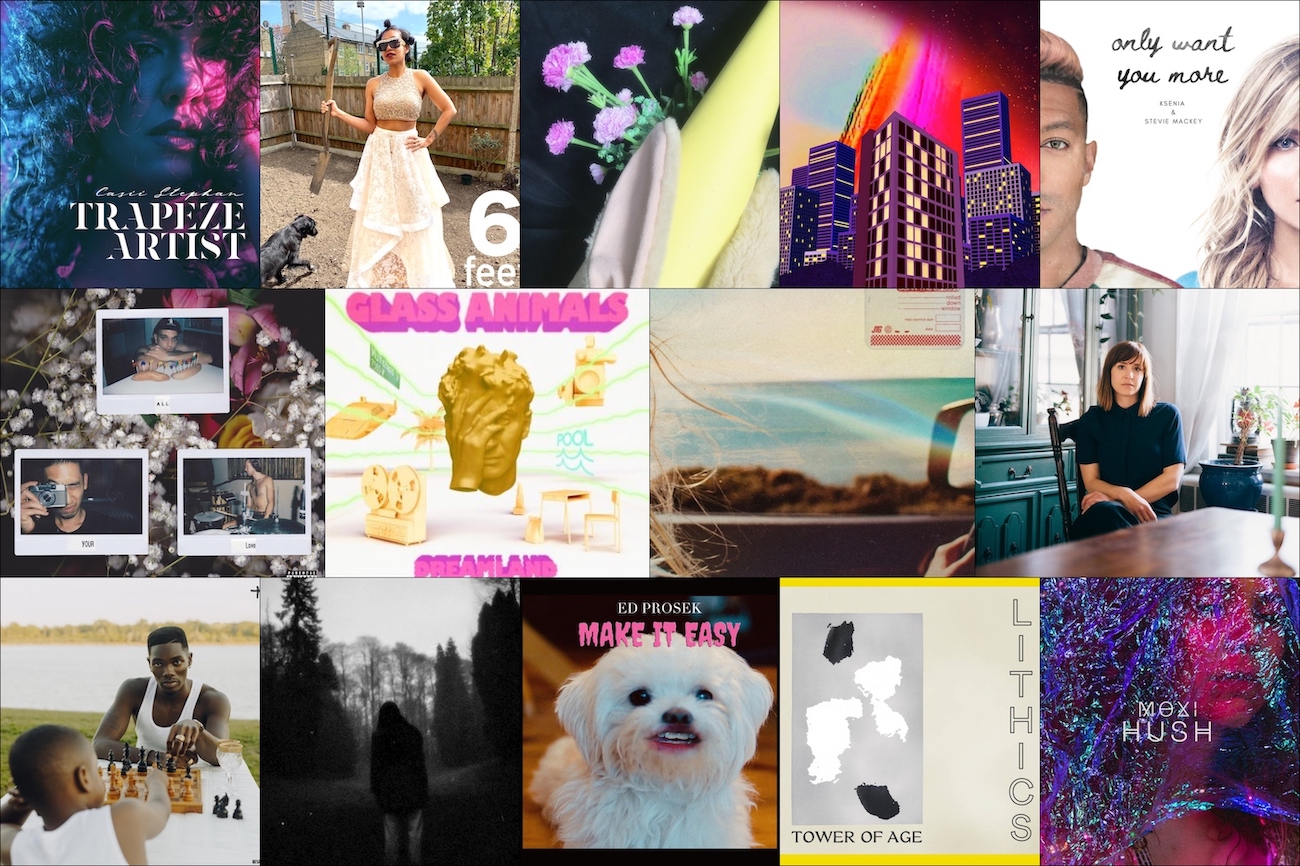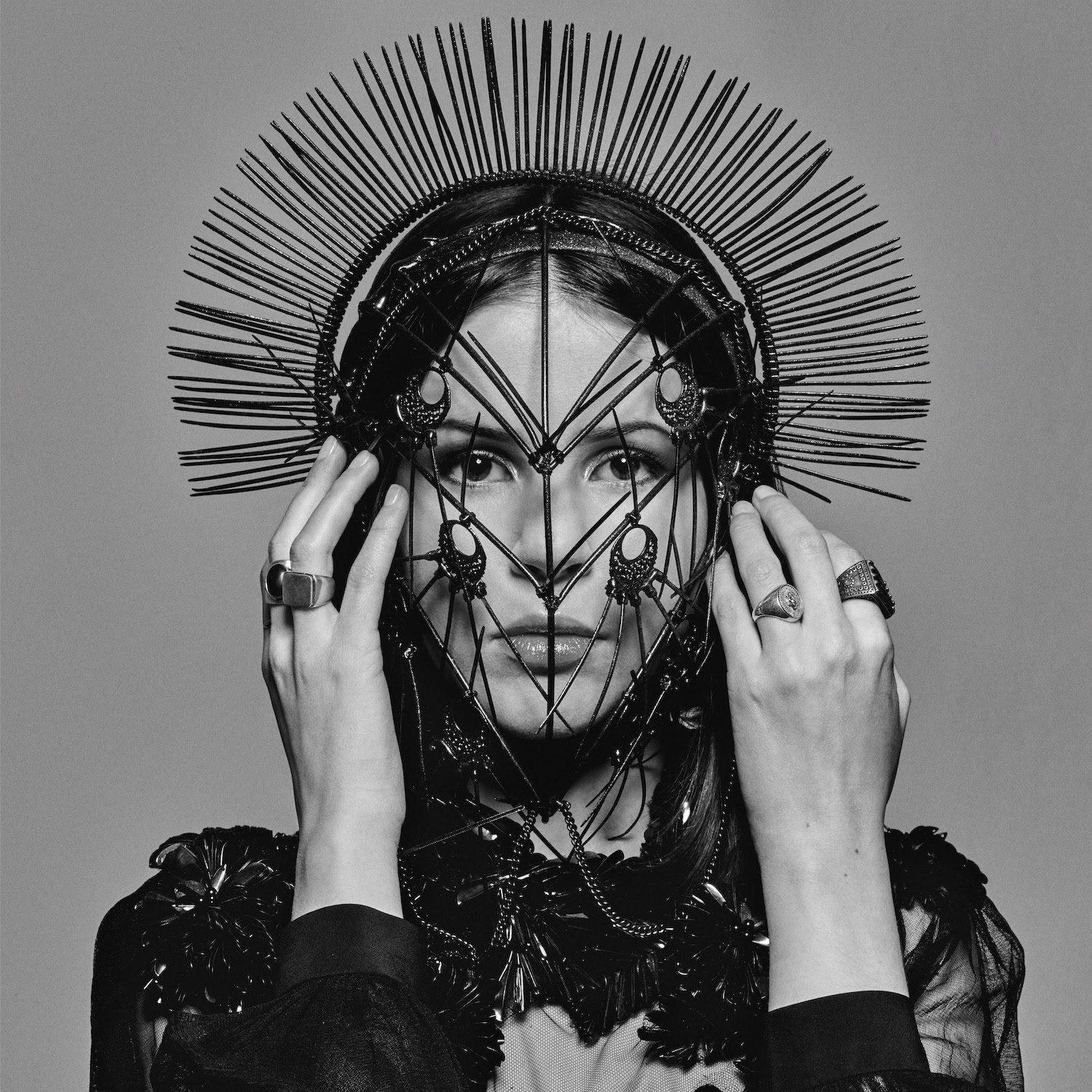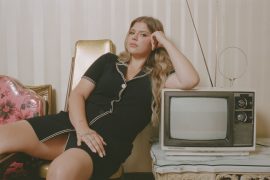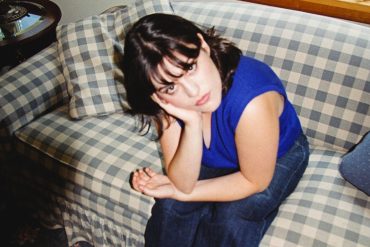Cold War Kids’ Nathan Willett takes Atwood Magazine on a candid and revealing deep-dive into the band’s self-titled 10th studio album – a charismatic, cinematic, and cathartic fever dream that sees the indie rock underdogs at their very best.
Stream: ‘Cold War Kids’ – Cold War Kids
Cold War Kids are a special kind of indie rock royalty.
Underdogs for 20 years and counting, the band led by Nathan Willett and Matt Maust perform with fire in their eyes and a hunger in their souls – forever chasing something elusive and ethereal, always visible but just out of reach. Their music has the fighting spirit, and with their self-titled tenth studio album, one gets the sense that they finally know, once and for all, what it is they’re fighting for.
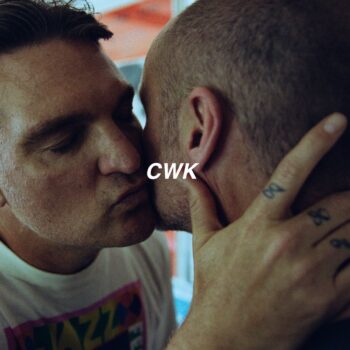
“This is not the self-titled you make as your first record when you’re shiny and new; this is the self-titled that feels a little more worn in from a lot of lived experience, and the fact that we’re in this place where we have our hands in a few different jars,” Willett says. His eyes light up as he talks about how far Cold War Kids have come, and how far they still have yet to go.
“We are very much in the game of putting records out and being driven by the art, and at the same time having songs that go out there and do something on the radio and be a part of that culture,” he adds. “Ten records in, you are the institution, in a way. You’re not an outsider anymore. It’s owning all the sides of ourselves that the music has always done and that the band has always done.”
Released November 3, 2023 via AWAL, Cold War Kids is dynamic, dramatic, daring, and definitive: A deserving eponymous record, if ever there were one.
“The sound of Cold War Kids has always been there,” Willett asserts. “I wanted this record to be the ideal, best version of all those things we’ve always been.”
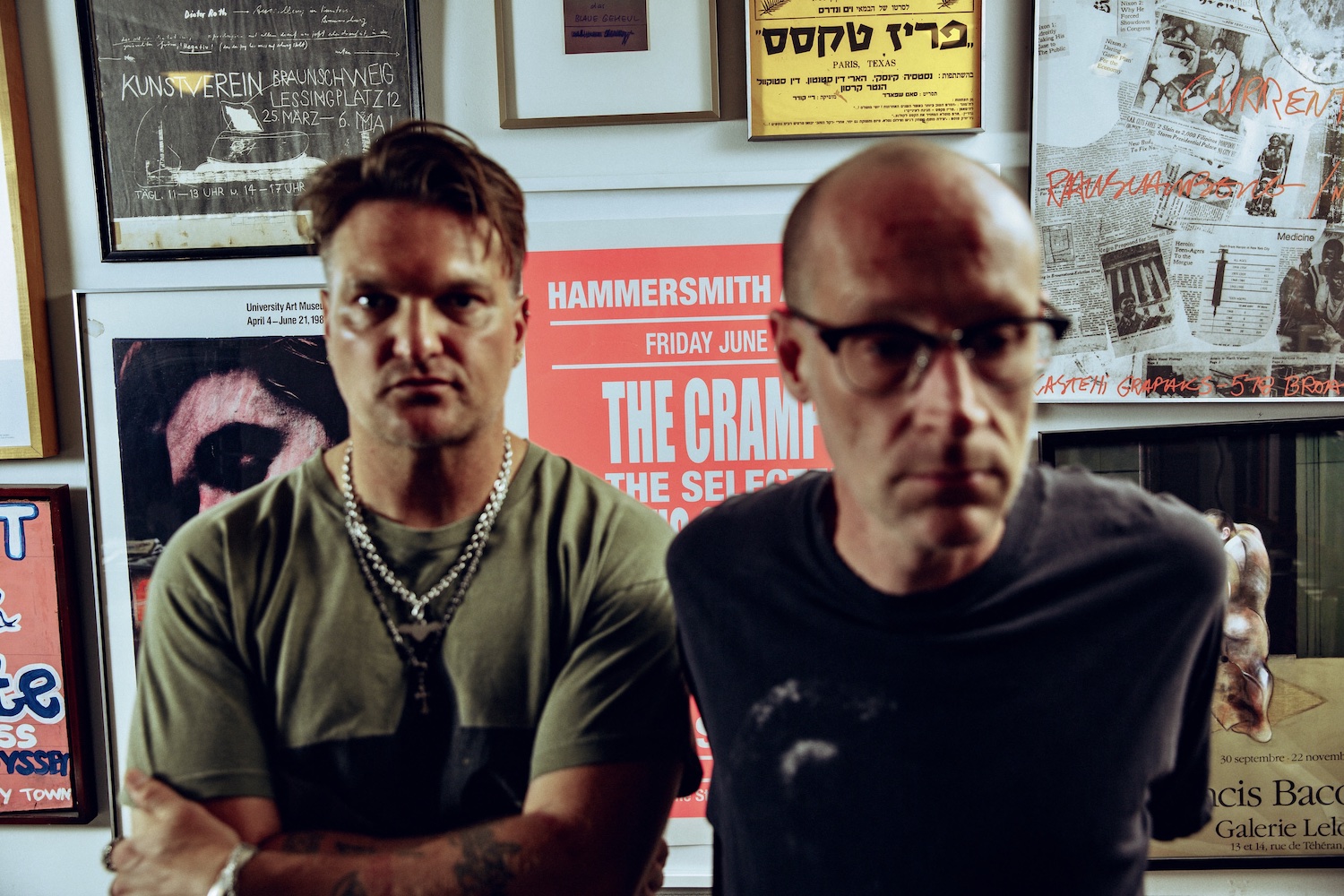
While the band started off as a bluesy, gritty indie rock outfit, they’ve evolved considerably over the past two decades, incorporating elements of R&B, gospel, Motown, and even *gulp* pop into their music as they themselves have grown, evolved, and changed. Fresh of an experimentation-driven three-album series entitled New Age Norms – through which the band built out their world considerably, exploring innumerable facets of who they’ve been and who they could be – the self-titled Cold War Kids feels like their thesis statement: This is who we are, it boldly declares in twelve soul-stirring, passion-fueled songs.
Cold War Kids is also the band’s most introspective and personal album to date, as Willett’s songwriting turns inward to reflects on his and the band’s identities: Their story.
“The first line is, ‘Since 2006, I haven’t been the same,’ and that’s literally Cold War Kids! That’s my life, and that’s the story, in that first song, ‘Double Life,’” he says. “It’s literally about having three kids and how that has affected my life, and that double life of rock n’ roll and domesticity.”
”On the surface, being really on the nose about that feels lame – it doesn’t feel that thrilling, but I of course hope that some of that transparency, that there’s power in that, in being known and not just writing words that I feel are cool, but that are revealing some of myself. I get very inspired by seeing the wave of how necessary that is for young artists. There’s something that’s much more brave, the buy-in as a young artist to have to reveal more about yourself – there’s a side of that, that I kind of go, ‘Okay, I feel challenged by that. I need to listen to that call.’”
Since 2006 I haven’t been the same
Between fiction and fact, which one of us changed?
Now I’m a mother of three, not living for myself
I’m dancing right here but my heart is somewhere else
Sing my songs, bang my head
Rush me home, back to bed
When you live a double life, it’s dangerous
Oh, not to feel loved, not to feel
Keep it calm, calm, calm, it’s dangerous
Oh, not to feel loved, not to feel
Cold War Kids have always kept it fresh, and their eponymous album sees them at their very best.
From the spirited opening anthem “Double Life” and the achingly vulnerable dream-chasing finale “Starring Role,” to the heated “Toxic Mask” (an intimate exploration of privilege and playground social dynamics), the churning, emotionally charged “Blame,” and the soul-soaked “Sunday in the City” (a celebration of Los Angeles, of humanity, and of finding joy), Cold War Kids is endlessly enthralling: A charismatic, cinematic, and cathartic fever dream.
“With this, I want people to hopefully hear it and feel a sense of release – an emotional release in every way,” Willett concludes.
Atwood Magazine caught up with Nathan Willett for a candid and revealing deep-dive into Cold War Kids the band and Cold War Kids the album. Learn what makes this band such a special kind of indie rock royalty in our interview below, and get lost in the fire, the hunger, and the fighting spirit of their impassioned tenth album!
— —
:: stream/purchase Cold War Kids here ::
:: connect with Cold War Kids here ::
Stream: ‘Cold War Kids’ – Cold War Kids
A CONVERSATION WITH COLD WAR KIDS

Atwood Magazine: So Nathan, before we even talk about Cold War Kids’ new album, I wanna actually step back a second, because you guys released a fantastic trilogy of records, New Age Norms, over the past couple of years, and I never felt like that trilogy got its due. So I wanted to talk about that trilogy, and those three records first.
Nathan Willett: Yeah, thank you! Good question. I think it represented kind of a break. At the time it felt like I wanted to deliberately do something that would create a different result, create an environment for different music, different songs, and different collaborations to happen. And I learned a lot from it. I think coming from a season where we had done the L.A. Divine record with Capital as a a one-off, and then we had this obligatory best-of collection that was a struggle to do, but we ultimately got to assemble it ourselves, and do the artwork ourselves and everything… And then the live record was wrapped up all in those couple years, too, so it was a lot of forward and backward looking at the same time.
I needed to get in a space where it felt really creative and felt like anything could happen. The danger for any artist or band, this many years in, is that you’re playing the same set list every night, and you can kind of see that maybe people don’t want that much new music from you. Especially the bigger the artist you are, the more I think that people know maybe you’re on tour to support a new album, but that they really don’t want that much change.. It’s just like a human nature thing. For me it was like, “We’re gonna do this with AWAL as the label, but we could do anything. So what are we doing that’s more interesting than just putting out another record?” I think this trilogy was a way of breaking the mold and shaking things up, and that really did lead us to this self-titled record.
It’s funny, in talking about that and framing that, I’m able to say, “Yeah, that is exactly why I think that this record came out the way it did,” in terms of finishing that trilogy and realizing I wanted to work with a bunch of different producers, and had a bunch of songs, and thought about putting out another EP, or thought about just putting out some singles and all this stuff. And before I realized, okay, I really need to be patient with this and really make a full-length record.
Part of that, as you said, is the trilogy did not get its due. It did not get the attention or the understanding that I hoped it would. In hindsight I understand why – I think it was the nature of the thing, like if you’re gonna be deliberately a little confusing with a trilogy of records longer than an EP, shorter than a full length, what is it? In hindsight, I totally understand why.
And then of course, most of it came out during the pandemic at a time when there was so much music. Everybody I talked to, the choice was either put out the thing you’re working on knowing that it probably will not do what you hope it will, or save it and have that bad feeling that it’s gonna come out later, when you’re already on to the next thing. It was a lose-lose, but you have to ask yourself, why am I doing this? I feel like the “why” came in a lot of ways.
We’re doing this in the same way that we started the band because it feels really exciting and urgent, and if people show up for it, great. But that shouldn’t have too much of an effect on what we’re doing. I feel like that was the spirit of New Age Norms, and I’m very happy with it. We spent a lot of years working a certain way as a band and writing together and recording together, and then a ways into it I started working with Lars Stauffers, who produced and engineered and mixed four full lengths, which is a lot. I learned so much from him, and I learned so much about how to be better at everything. And then the terrible but necessary kind of evolution was, it was time for me to break out and work with different people. I was scared to do that – I learned so much with him. To walk into a room with a producer like Malay, who’s done crazy big stuff (from Lorde to Frank Ocean), you have to really be comfortable and be yourself right away and say what you want and go for it. That’s not my nature necessarily, but it has to be when you’re playing on that level. And so I got to work with a whole bunch of different producers that I’m a huge fan of, and write and assemble this record that way. That’s really what I wanted to do, is be a little bit scared of what was going to happen and reach out to some people that didn’t know how it would go. So that’s the somewhat long or short version.
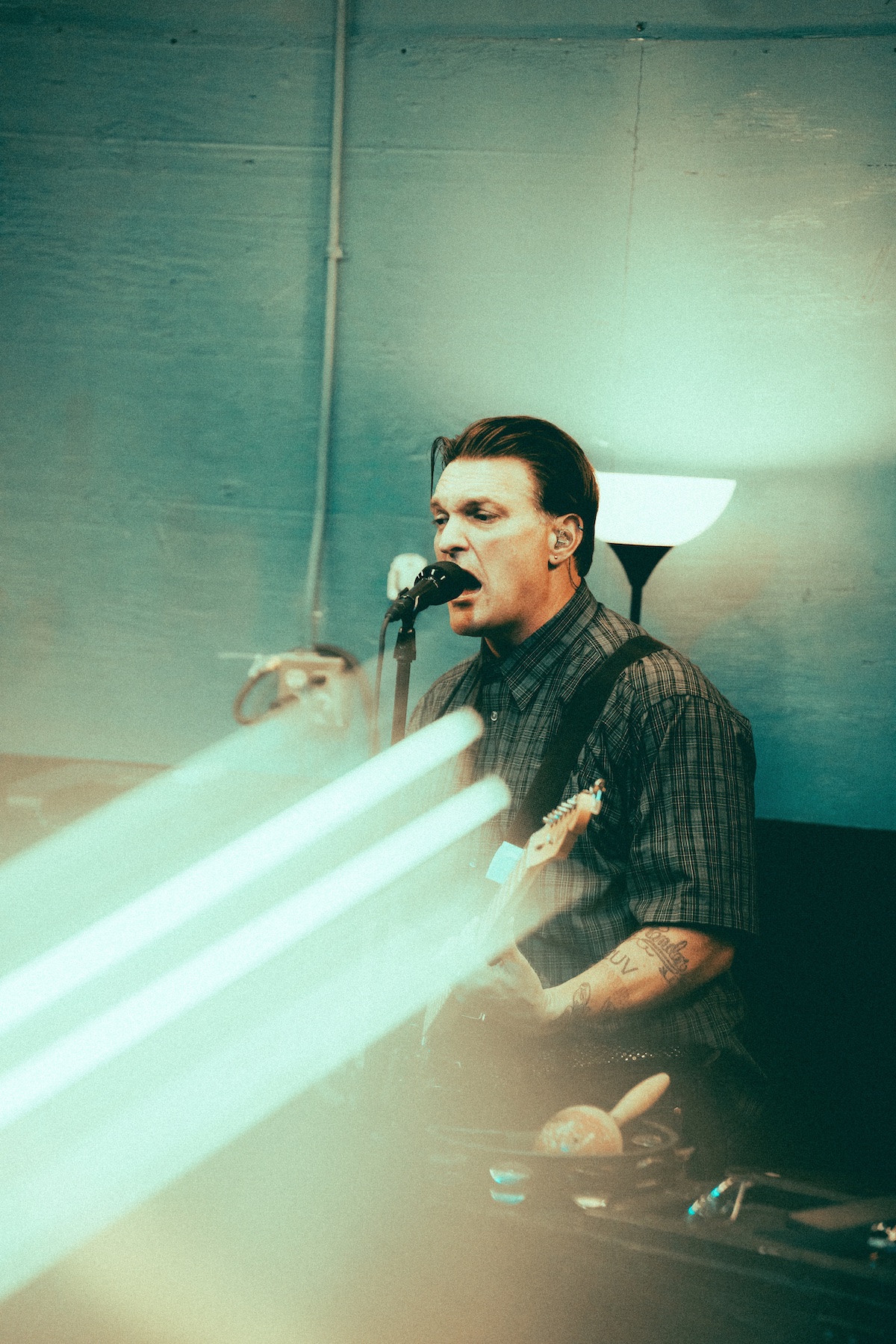
One of the things that I really enjoyed about New Age Norms was hearing you break out of whatever mold existed for you guys at the time. There’s always been an underlying R&B and soul element to your music, but I love how pronounced it was throughout those records.
I’ve always seen New Age Norms as a three-part record that should be all one entity, but to clarify, were those records all made separately?
Nathan Willett: Yeah, they were all made separately, that was the intention, but I love that you’re listening to ’em all together. That’s really cool!
Switching gears now, I think there's something special about a band’s self-titled album. Why release the Cold War Kids album now, so many years in?
Nathan Willett: Evolution and experimenting and also retaining the original sound of the band, I think, is always the line that we’ve walked – whether it’s pop and R&B, to gospel, to Motown, there’s a lot of things that probably didn’t show up on the first couple records at all that have developed over the years. Sonically, to me, it’s always important that there is a through-line, that there’s a thread even from Robbers & Cowards. I think sonically, and the feel of the band, and the original sound staying kind of intact, and writing songs with all of those influences that we’ve accumulated over the years… Incorporating them in, at a certain point it felt like, yes, this is the time for the self-titled record – which is partly a little bit of a stretch. Yeah, it’s 10 records in, and it’s not what it’s supposed to be when you make a self-titled record; everything about how we work and how we are is very different than when we started.
Part of it is even connected to the album art, the picture of Maust and me kissing for this cover, he and I being two of the four guys that started this thing – there’s something in a way about the self-titled that it’s acknowledging that this is not the self-titled you make as your first record when you’re shiny and new; this is the self-titled that feels a little more worn in from a lot of lived experience, and the fact that we’re in this place where we have our hands in a few different jars. We are very much in the game of putting records out and being driven by the art, and at the same time having songs that go out there and do something on the radio and be a part of that culture, which at first we were very reluctant and just sort of went along with, and then over the years have had tremendous success at… And then at a certain point you kind of go, “Okay, this is a part of who we are.” Ten records in, you are the institution in a way. You’re not an outsider anymore. So I guess it’s owning all the sides of ourselves that the music has always done and that the band has always done.
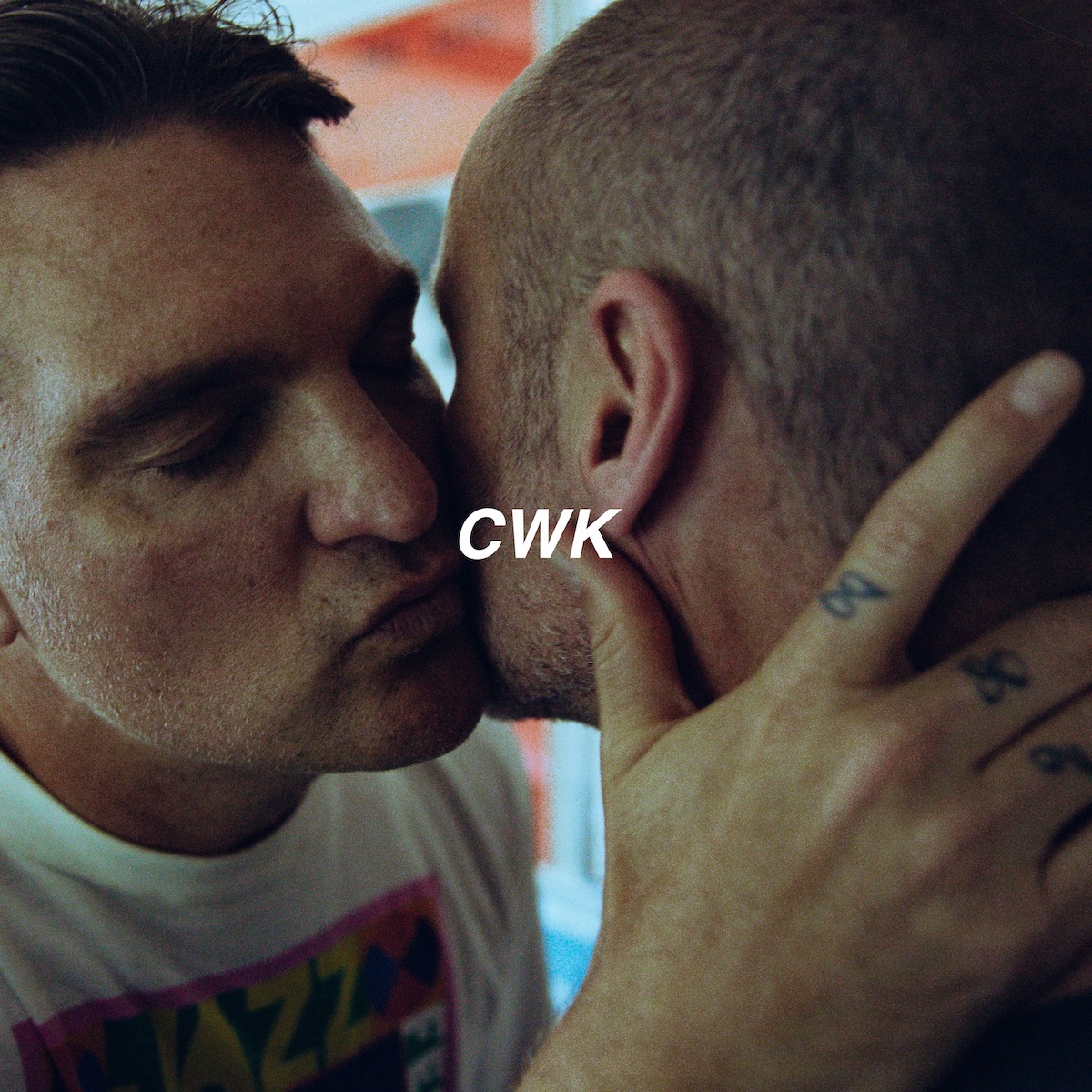
I think you'd be a fool to see a band like Cold War Kids, with a two-decade trajectory, and only define them by the song that hit the most radio charts. But I get that.
Nathan Willett: If anything, I think the funny thing about that is that people who only know that song don’t really know that it’s us. [laughs] It’s a strange and in some ways great problem to have songs that are bigger than you are. We lived through the ’90s, where one hit wonder bands had enormous success with a single or maybe, and I can’t imagine the feeling to me as a band or an artist that you wanna get started on the next record, and you can’t because the label isn’t sure what they want you to be or how they want you to do it, or what the budget is, because the stakes are so high, and it’s getting through that phase where the big hit single is actually not the hardest part, it’s the next phase after that – to try to make a career for yourself – that I think anybody probably our age witnessed that and went, “Oh my God, this is where I think a lot of indie rock was born.” That would be a terrible feeling if that’s where you found yourself… And you still see artists from that time, who may have even finally found out how to self-release some music or be let go of by the label, and now it’s just so hard to connect the dots to their audience of what their music is. I feel for those people because I think it’s the culture that they came up in that made it so hard for artists to connect directly to their fans.
For me, the takeaway of that is just really wanting to always be on to the next thing and always be creating and writing. And at the same time, we were saying for the New Age Norms series, I also see how, when there is a disconnect in the narrative, how to tighten that up in order to get people to know where you’re at. This is everybody’s problem – it’s really hard to do that. I think a lot of it is just somehow caring and not caring.
People like a good story. It helps.
Nathan Willett: Exactly, and this is what I have learned probably more than anything, is that good stories, some people are really good at, really have a natural talent for creating a good story. But for the most part, I think stories happen to you, and then you learn how to lean into them when they happen to you. The rest of it is just doing your thing. Finding the ways to make your story something that’s true for you, but not force it. I feel that’s been our thing always with Cold War Kids; I don’t want to be in the marketing business. I don’t want to “find out” how to tell our story in a way that is so concise and compelling. I want to make music and release it and perform it, and I hope that the narrative can make itself.
Cold War Kids to me is a very concise album in that, by the time we finish listening to the final track “Starring Role,” I feel you've said everything you wanted to say on this album, and I feel good moving on from it. Especially compared to your most recent records, what is fresh and new and different? What, to you, makes this one stand out from the New Age Norms albums and from L.A. Divine before them?
Nathan Willett: Let’s see. This is what I love about it, is that you follow this, I’ve followed a feeling and then you have to make sense of it. Obviously it’s a really boring answer to say that this was just following a feeling that I knew was right. But what it ended up as is working with a bunch of different producers and from a lot of different lanes, and writing in a way that was allowing to write a lot of songs that weren’t gonna get used, which is in some ways unlike New Age Norms and the early days of the band, when we would self-print and produce these little EPs and sell them at shows. That’s what was fun! That’s what was really inspiring to us. And that’s what was the spirit more, I think, of New Age Norms.
Cold War Kids is about working in the big leagues in a way, I guess. Not just because they’re big producers, but it’s almost like the style of the band from the beginning. Even with the songs that have done well, there’s a messiness which usually gets called indie rock or whatever, like a degree of abstract – whether that’s lyrics or music – that’s not just the most clear message.
The song “Starring Role” I think as the closer, to start with the closer, I feel like it in some ways says a lot about the band and what we’ve done, and this existential feeling of always wanting more that is universal, or maybe it’s really specific to Cold War Kids and how we’ve got to accomplish so much. It’s impossibly beyond any hopes and expectations we could have had, and at the same time, a deep sense that we haven’t quite fulfilled all that we’re supposed to yet. It’s strange, I think, for a long time, my attitude was just, “I can’t believe we get to do this, I can’t believe we get to travel the world and perform and have the freedom that we have and get to do things our way.”
And then the other side of it is that the song “First” and what it did at radio and how that manifested in what it was like to go around festivals, it opened the door on going like, “Oh, okay.” It’s almost laughable in hindsight that we didn’t know that, even in a modern context, that the power of a song at radio, that’s how bands have a big platform. You think that it’s not that way anymore, but it absolutely is. And whether it’s The National or Arcade Fire or The 1975, at a certain point, every band making their records has either stumbled upon the enormous success of a song that’s done great at radio, or very deliberately done it. But either way, at a certain point, if you’ve made enough records, if you’ve seen the impact that it makes, you go, “How do we get more of that?”
I think how you deal with that is, it’s the sort of the secret that makes some artists so brilliant, is they can reproduce that in a way that’s really authentic and powerful. And the really scary thing is artists that try to go there and it’s not authentic, and everybody smells it – they know when something is false. And when you’re in that place, then it’s really scary. That’s where you can get really lost. Again, the funny thing to realize is that, whoever it is – the most credible artist or band or whatever – you realize “Oh, they’re dealing with that same thing” of how to make great records and make great art, but also to be relevant, whatever that means.
Maybe it’s a little too purist to think of it. We’ve always had the strange place where we thought we were cool, we thought of ourselves as being this purist very indie rock inside, we’ve done our homework, we know all the stuff that all the cool bands know. I think because early on with our first record, it was divisive in terms of people going, “Oh, no, these guys aren’t cool,” we have both sides of it. From the first record we had the fan that maybe heard about us from radio, or that was more of sort of just a music fan, and then we had some of the more hardcore people that were getting it on a different level.
That was a big decision for us early on, to be here for all of it. We got to early on have that sense of, “Let’s embrace all the kinds of people that are coming here,” which again, in a way it comes with the price. I think it’s a lot easier to know exactly who you are when you say, “I’m gonna stick with the fan that speaks my language.” And it’s harder when you’re like, “I don’t necessarily know who all these people are or what’s drawing them towards us, but we’re here for all of it.”
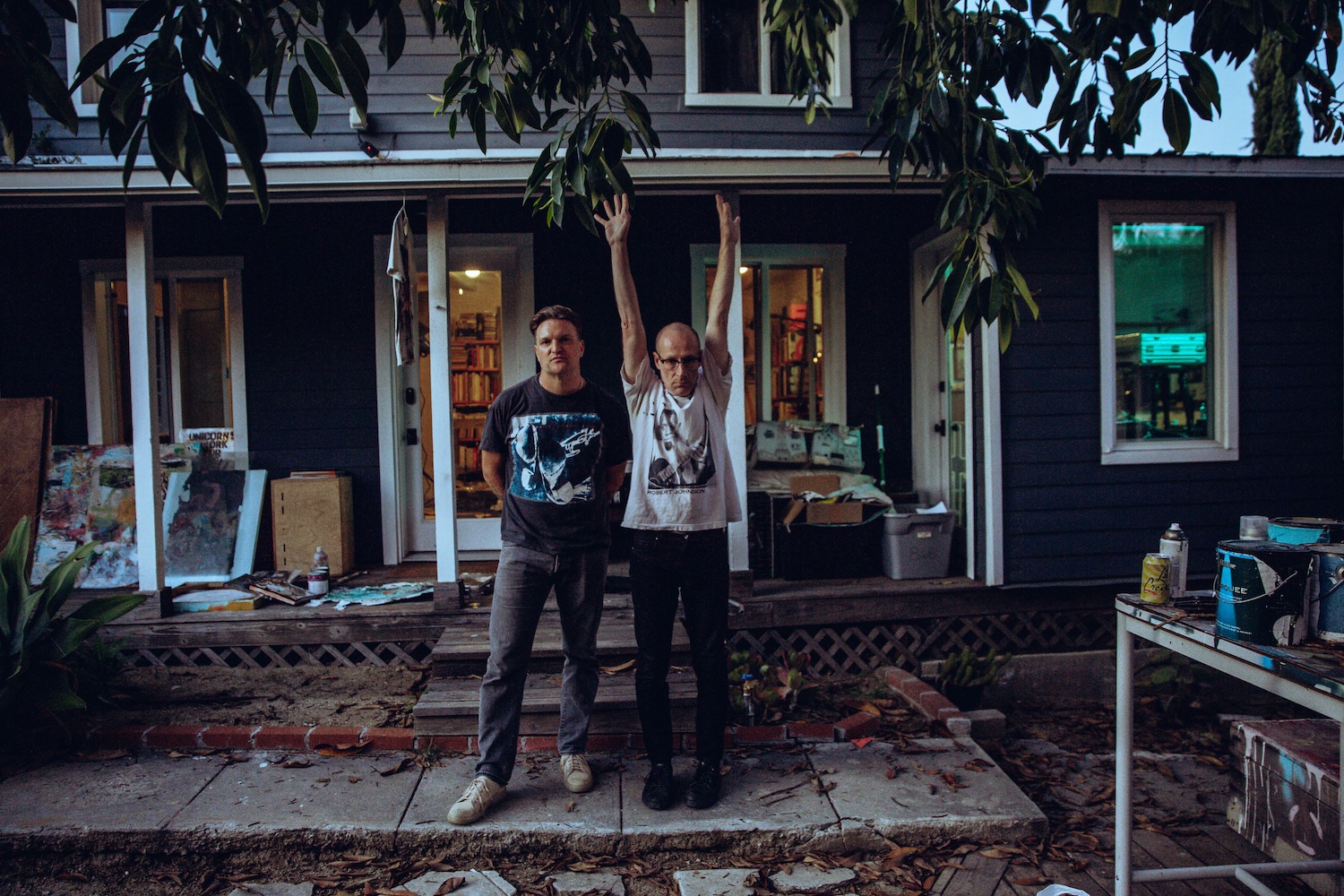
You mentioned that this was definitely not the end of Cold War Kids in terms of feeling like you have more to say and more to do. It made me think about this quote, I forget who said it, “I'm gonna keep making records ‘til I know I've made my best.” I think it's always great to keep chasing that feeling – that's kind of a never-ending quest, which keeps us all going, right?
Nathan Willett: Totally.
Cold War Kids, to me, feels autobiographical – and I'm not just reading into it because you named it after the band. You literally start off the album singing, “Since 2006, I haven't been the same,” so I’d like to take it from the top. Was there a goal here to tell your own story from whatever perspective you have now, so many years in?
Nathan Willett: Yes, very much. To tell the story of myself and the band and do it in a way that doesn’t feel like breaking the fourth wall from what we’ve done in the past was the goal for me. From the beginning, there has always been more emphasis on storytelling… that’s kind of the difference between the band and the solo artist, especially now over the five years, it’s really fascinating to see the style of writing that is so self-referential and heavy-handed. Music that is resonating right now is so on the nose, and it’s interesting because, from Taylor Swift to boygenius, to the million artists that are amazing that I’m getting to discover all the time, the sort of assumption that you are building your own kind of myth and playing with your own self references is so different than how we started.
I’m maybe biting off more than I can chew here, but the idea of boygenius naming a song “Leonard Cohen,” for the time that we came up in, that would be such a sore thumb, such an odd thing to do. But it is now so brilliant because so much time has passed and people’s references are so scattered… If you want people to know who your idols are, put it in the song title! That’s how you share your message and build your audience and your thing. I look at that, and I’m envious of that. Like, damn, what an interesting way to share your loves, and also to direct people to the art that you love and make it a part of your story.
But I feel like the other side of that is that, it feels like cheating a little bit. You have to write your own poetry. You don’t get to skip past the part where you do something profound, right. Just saying Leonard Cohen’s name isn’t being profound because you said that name. I don’t even know why I started going to that place. With self-referencing, I did want to go there with some of these songs. So the first line is, “Since 2006, I haven’t been the same,” and that’s literally Cold War Kids! That’s my life, and that’s the story, in that first song, “Double Life.” It’s literally about having three kids and how that has affected my life, and that double life of rock n’ roll and domesticity.
On the surface, being really on the nose about that feels lame – it doesn’t feel that thrilling, but I of course hope that some of that transparency, and even the way that I feel it’s kind of embarrassing, I hope that there’s power in that, in being known and not just writing words that I feel are cool, but that are revealing some of myself. Again, I get very inspired by seeing the wave of how necessary that is for young artists. There’s something actually that’s much more brave, the buy-in as a young artist to have to reveal more about yourself, there’s a side of that that I kind of go, “Okay, I feel challenged by that. I need to listen to that call.
It's a great album opener. I’d love to talk about a fast favorite of mine, “Toxic Mask.” It's one of the first tracks that really stood out to me, not least because it's ready for the arena. It's a loud, high-energy song, but then you're singing these fantastic, very interesting lyrics. “We became the very wolves that raised us; we must not betray the pack.” What is this song about to you, and where does this song fit in the overall Cold War Kids album?
Nathan Willett: This song to me, it’s very much absorbing the time, especially over the pandemic and, this enormous self-reflection of being a white male, and all of the privilege that I have inherited. When I think about this song, I can literally picture being in my public school junior high basketball court area, where kids were hanging out, and the social dynamic that’s happening. I think a lot about learned toxic masculinity, and it makes me think of playground social dynamics. It’s pointing the finger in a lot of directions, whether it’s toward the institution of school or the nature of your peers turning against each other or whomever.
It has this feeling to me, where I don’t even know whose fault it is. But the ending of it comes to this kind of like message, “Will you pretend or will you surrender in the end?” For me, there’s anger and confusion about the unfairness of all of life – of childhood, of everything that you go through – and coming out the other side of it, you almost see how people make this decision to either pretend it’s okay, like they are okay, or you surrender and just go, “Yeah, it’s not fair, it’s not okay, but I’m just kind of surrendering to what it is.” That song, it does feel it has a lot of big themes in it that I don’t want to narrow down too much, but I wish I could a little better. I guess it’s how we learn behavior.
I was an average kid from an average place. I think of the childhood that I had and being in Southern California, and having traveled the world, and I think a lot of people would go, “Wow,” something that, if you were from Southern California, it was like a movie you’ve seen of LA or something. I think everybody feels in a lot of ways like stuff’s not that different, like the way you grow up is just normal to you and the social behaviors that you learn in a lot of ways are the same everywhere, at least in the US. I think there’s something really like emotional in that song, in just the music itself, whether it’s a soulful blues or gospel or even a pop thing. It has more of a rock or emotional thing. I don’t know how that falls in line with other Cold War Kids songs, but I feel like this is a song that I could see doing a whole record of. I don’t know what it is exactly.
It's really intense, and that's one of the reasons why I like it. It's new, it's fresh and I didn't see it coming! The other one I didn't see coming is “Sunday in the City.” I love that song.
Nathan Willett: Good.
That, to me, is such a beautiful Motown-ish song sung by an indie rock band. I honestly fell head over heels for that one. I don't think that one could have existed without some of the more experimental songs you did in the New Age Norms series. How did “Sunday in the City” come about?
Nathan Willett: Thank you. I love that song so much. I’m so proud of that song, and in some ways the simplicity of it… I wrote a bunch of these songs with a guy named Casey Lagos, a lot of time spent during the strangest of pandemic times going in there and just being very uncertain about everything and just working, and this song felt like something that Cold War Kids has always been in my mind, but just going further with it. It feels like that classic sort of ’60s, ’70s Motown sound, like the band War, and there’s an ease about it. We live over here by Griffith Park and there’s these sections of it that are very Mexican parts, and just you walk into it and feel very transported to a different culture and a different time, where like huge parties and families and people that are so present here in this moment. I’m so drawn to that.
I married into a Mexican family, and the family bond and the culture of it, the hanging out and eating and laughing and being very connected is very powerful to me. Especially coming from a family of divorce, a White individualistic type of family, his song has this weird purity of watching kids on a playground. It’s a very much like an “It’s all gonna be all right”-type of song, at a time that it didn’t feel that way. And there’s like the line somewhere, towards the end is like, “There’s loneliness, hunger and wildfire, but still there’s music everywhere.” And I can just feel like walking through Griffith Park and seeing so much life happening. I think at the most dismal, of sitting there on your phone reading the news and how bad everything seems, finding those places where there’s still so much joy happening, it felt like a huge relief to have this song come out, which is what I was looking for – you create the things that you need, I think.
It makes me think, yeah, it’s a very LA song. It makes me think of just the unbelievable tragedy of how much homelessness we have. Everywhere you go, everywhere you’re driving, there’s tents, people sleeping under freeways and alongside every street and everywhere you go. And it just felt like there’s a way that finding the joy in those moments, finding those people who are living on the side of the freeway, but are hanging out and laughing together… and wanting to see that humanity and appreciate it and not through this lens of reading another failed politician or another failed attempt to cure this societal problem, but to also see the individuals there and the joy in it. It’s the thing that I’m missing when I’m learning about the world and everything that’s happening in my city and all around me; the joy of these people is still very real. You can’t count that part out.
It's a fantastic song, and it's one of the most fun tracks musically on the record. I just think it's a celebration.
Nathan Willett: Thank you. I’m really excited to, I really want that one to become a live staple and I’m really excited to see where that fits in, because I love that song. I feel like I want it to be almost like a “Something Is Not Right With Me,” “Saint John”-type of song that just is a nightly jam.
That would be awesome. You touched on “Starring Role” earlier when we first started talking about the album, and I want to bring us back to that, because the lyrics of that song are very personal, clearly very intimate and vulnerable. “I want the starring role this time, missing. Why do my heroes always compromise? I never wanna lose the light behind my eyes.” Why is this the end of the album, and what does this track mean to you? What is the purpose of this sendoff?
Nathan Willett: I was literally sitting at an Enterprise Rent-A-Car thing, looking at my phone, reading some dumb celebrity thing, whatever it was, somebody’s dating somebody or somebody breaking up with somebody or something and just going, “I don’t care about this. What am I even looking at this for?” I think so much of that industry exists because of how much we project… It gives us the ability to be doing something that is very annoying, like sitting in line for a rental car, and a little escape from it.
But the more serious thing for me is that, I’m not content. I think that’s the side of it that I struggle with: Because I have so much, I feel guilty about wanting more. And at the same time, I do – I look at The 1975 or Arctic Monkeys or so many great bands or artists that are on the stage bigger than ours… when we open for Kings of Leon, when we open for Tears for Fears, there are these incredible opportunities. And I’m so grateful to be opening it at the same time. There’s always that feeling of just, I want this to be my stage! How do we get here? It’s a dangerous game to play, to look at what somebody else has and be like, “How come I don’t have that?” Most of me is just like, “Man, don’t worry about that, work with what you do have.” But expressing that in this song and ending it there, I feel like there’s a message that is true for us, where it’s just like, I wanna know what it’s like to be on a bigger stage, whatever that is. Some of it’s that I know enough to know that there’s an empty feeling every time somebody wins a Grammy, or every time I meet somebody who has accomplished something that I want to accomplish, and they’re like, “Yeah, it doesn’t really change anything. It doesn’t really give you the thing that you think it’s going to.” I know that, but I still want it! And that’s the crux, that’s the weird crux of it. I know that that next milestone is not going to complete me. But also, I still I want to feel all the things. I want to experience all the things that I haven’t got to.
And I don’t want to just sort of fade into the oblivion of being an artist that acts like… You know, we lived through the ’90s, we lived through all the Fiona Apple on stage saying, “This world is bullshit, and all these awards don’t mean anything.” Even now all the artists that are like, I’m not gonna participate in the Grammys, or whatever it is. This sense of, I get it. We came from the punk rock shows of our teenage years, of all these bands that kind of still exist, that I guarantee are sitting there going, “Man, how can we make our next record more exciting than our last one?” I don’t want to limit our options for how we can do this differently. Even as we put this record out and as next year we go on tour and it’s amazing, we’re going to play a lot of sold out rooms all over the country, and it’s incredible. And at the same time, a lot of them, we’ve been to five plus times! It is a wonderful thing to be able to do that.
And at the same time, if I didn’t have a little bit of feeling in every record that this could be the one that somehow cracks open something for us that wasn’t there last time, then it would not be that exciting. I want to go into every record feeling like anything could happen on this one, and I want to make the record that can create that opportunity. I feel like this song is very much speaking to that.
Sounds like it's a never-ending tussle between ambition and humility.
Nathan Willett: Yeah, that’s it.
That's a cool thing to talk about openly; everyone feels that way, but a lot of folks are afraid to say it, or don't want to admit to feeling that way, so I appreciate you just coming out and saying it. I shared with you a couple of the songs that I love… Are there any songs that we haven't spoken about yet, that are personal favorites for you that you can't wait for someone to listen to for the very first time?
Nathan Willett: Yeah, I’m glad you brought up “Sunday in the City.” That one to me is the one that, as we’ve got to release four of these now, that one is a very special one to me. The song “For Your Love” is another ambitious one that on the surface is more pop and more anthemic or direct, but beneath the surface is a message about exactly this kind of theme of ambition and humility, and is very personal to me.
My 4-year-old daughter was just diagnosed with autism. This is a really interesting thing for me, even in the writing of this song and struggles we’ve been through with her – 3:00 AM, holding her at her crib where she’s having a total meltdown and inconsolable and screaming at the top of her lungs, you have to draw from a source that doesn’t come naturally for me, to find a source that is not anger or frustration or all those things, but to find that unconditional love even in those moments of sleep deprivation. There’s this profound beauty in getting access to that, and I feel like that song is the embodiment of those moments for me, that feeling that is definitely a moment, but also an ongoing message of unconditional love, this tapping into a source that’s beyond what you know and your normal reserve. That is a beautiful thing and a really strange, mysterious thing.
I think that this song is kind of a love letter to her and to that love. We live very much in a conditional world where we love things that love us back really well, but when you experience the opposite, like the joy of giving something and seeing just how like fragile and how… I don’t know, it taps into something that’s much bigger than just two people. It’s about the good things in life that come from vulnerability and weakness and tenderness and all that stuff.
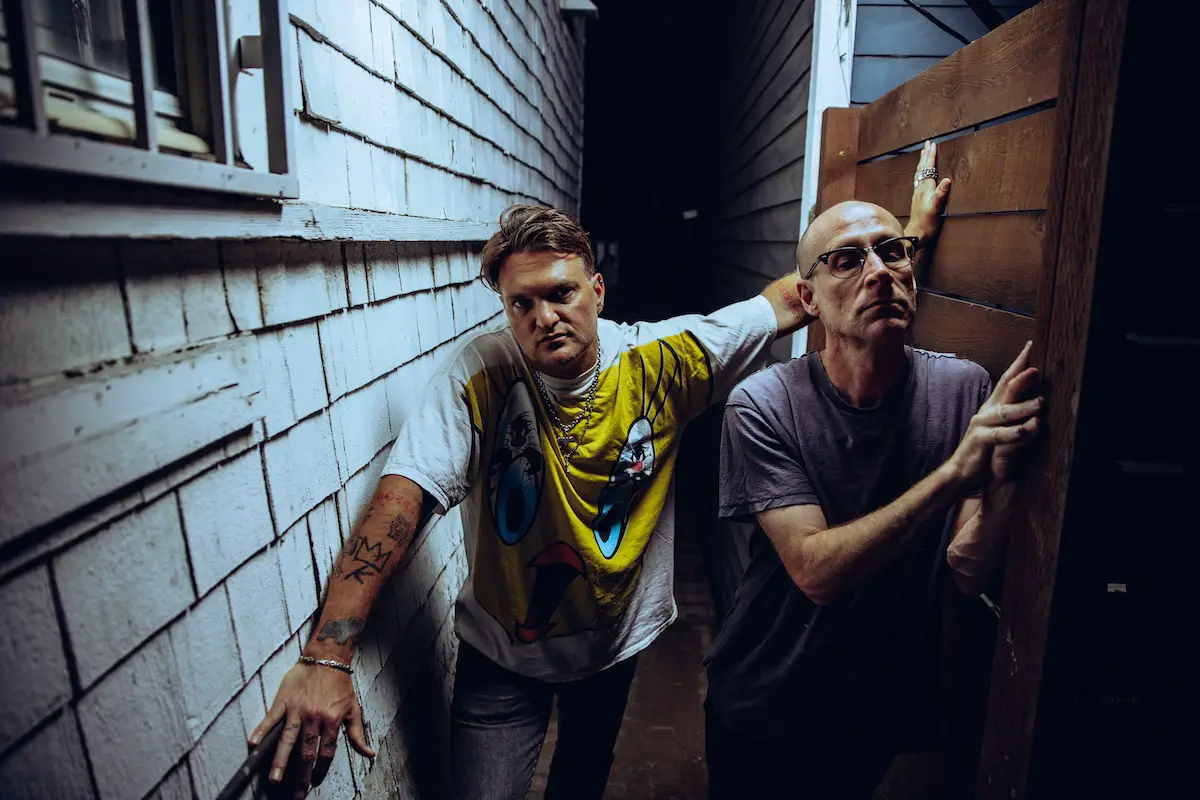
It’s about the good things in life that come from vulnerability and weakness and tenderness and all that stuff.
It's such a lovely track, and my heart goes out to you what you and your family have gone through. It's great that you've been able to harness those emotions, discover this side of yourself, and in some ways create a time capsule that you can kind look back on.
Nathan, Cold War Kids is a fantastic record, and I’m excited to hear how the story continues to be written. What do you hope listeners take away from this album, and what have you taken away from creating it and now putting it out?
Nathan Willett: It’s funny to have been doing this this long and to have put out so much music, where my relationship to every record has been very different. There’s not been any two that have been the same, and I think there’s a lot more distance between the earlier ones where you’re sort of so in it that you don’t have a sense of how it will be received or understood. You just know that it feels true and good.
Whereas this one especially, and again, back to the reasons for it being self-titled, is that I do have a lot more self-awareness and I’m trying to be in two places at once, to be creating something that feels very authentic and at the same time something that is intended to be understood and appreciated by people. That’s very different than how we started, to be – in every way – writing lyrics and editing songs and doing it in a way that’s for people. We’ve made so much music that in many ways I felt like this was for ourselves, to have this released. With this, I want people to hopefully hear it and feel a sense of release – an emotional release in every way.
Of course I know where I’m coming from, but the stuff that is universal about this, as you can tell in my meandering and as you know me well enough by now – I have probably done a lot of meandering every time we’ve talked – is that, the narrative and emotion of this record, I don’t know how it will resonate or what parts of it resonate with what types of people and why, but I know there’s a strong power there and I hope that it translates, and so beyond that, I do my job. My job, I think, is to boil things down to their essence as much as I can and hope that people will find their meaning in it.
My job, I think, is to boil things down to their essence as much as I can and hope that people will find their meaning in it.
It feels like Cold War Kids is the kind of band that continues to evolve and to think about its evolution in process. I think there's value to be looking at yourself along the way and saying, “What do I want my story to be?” and then going out and making that happen.
In the spirit of paying it forward, who are you listening to these days that you would recommend to our readers?
Nathan Willett: I love the artist Jolie Holland. She’s always one of the most under-appreciated. She just put out a new record, it’s called Haunted Mountain. It’s really good. The new Anohni sounds a lot like the Antony and the Johnsons record that I love so much, and I’ve been loving that record. I’ve been listening to the band SAULT. SAULT is the kind of thing, that sort of R&B, gospel funk stuff, makes me just want to go down that rabbit hole forever.
Pharoah Sanders and Floating Points, the record that they made, I went to that show at the Hollywood Bowl the other night, that was incredible. The new Brittany Howard song, I love everything that she does! Man, there’s so much stuff happening – it’s crazy. There’s so much good music that I am able to find all the time. There’s all these live Lou Reed records that are coming out, that I go way down the rabbit hole on, too.
— —
:: stream/purchase Cold War Kids here ::
:: connect with Cold War Kids here ::
— — — —

Connect to Cold War Kids on
Facebook, Twitter, Instagram
Discover new music on Atwood Magazine
© Sean Flynn
:: Stream Cold War Kids ::


 © Sean Flynn
© Sean Flynn